‘Take Care of Maya’ trial: CRPS takes center stage in $200 million case against All Children’s Hospital
VENICE, Fla. - Testimony continued on Friday in a $200 million case filed against All Children’s Hospital that was the focus of the Netflix documentary ‘Take Care of Maya’.
On Thursday, jurors heard from Maya Kowalski’s physician about her struggles with Complex Regional Pain Syndrome or CRPS.
Dr. Predeep Chopra, who has treated thousands of patients with CRPS, told jurors the treatments Maya’s family sought out for CRPS, including ketamine and physical therapy were helping.
PREVIOUS: ‘Take Care of Maya’ trial: Testimony continues in $200 million case against All Children’s Hospital
On Friday, defense attorneys worked to discredit Maya’s family and the treatments they sought.
Marissa Higgins is a physical therapist who worked with Maya Kowalski to try to help her walk on her own in August 2015.
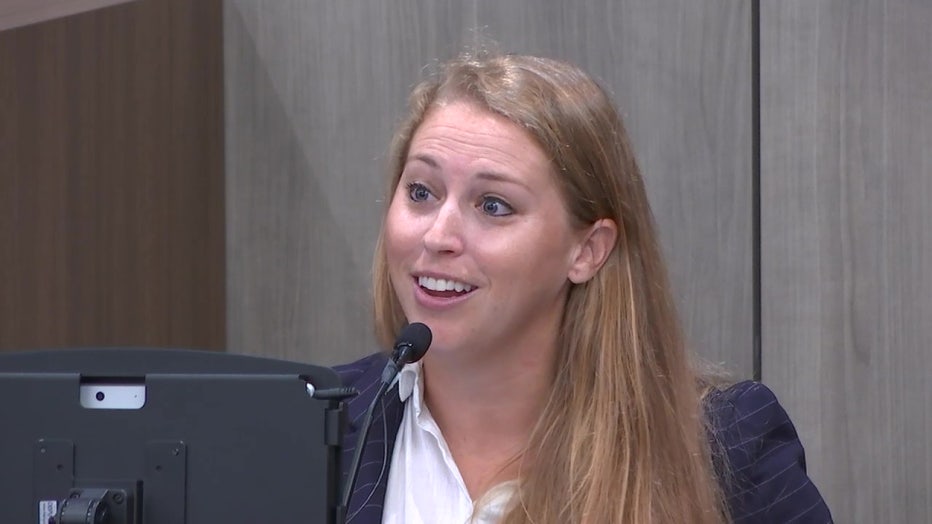
Marissa Higgins is a physical therapist.
"There were good days and bad days, as you can see, there while it wasn’t necessarily pretty or how we walk we progressed to the point where we could get upright," she told jurors Friday morning.
"These were links that carried over from other therapists as well. Is what you’re telling the jury is both from other therapists and what you put in that one of the barriers of Maya going home was the attitude of Maya and her family," asked defense attorney Ethan Shapiro.
"In terms of limitations due to pain," answered Higgins.
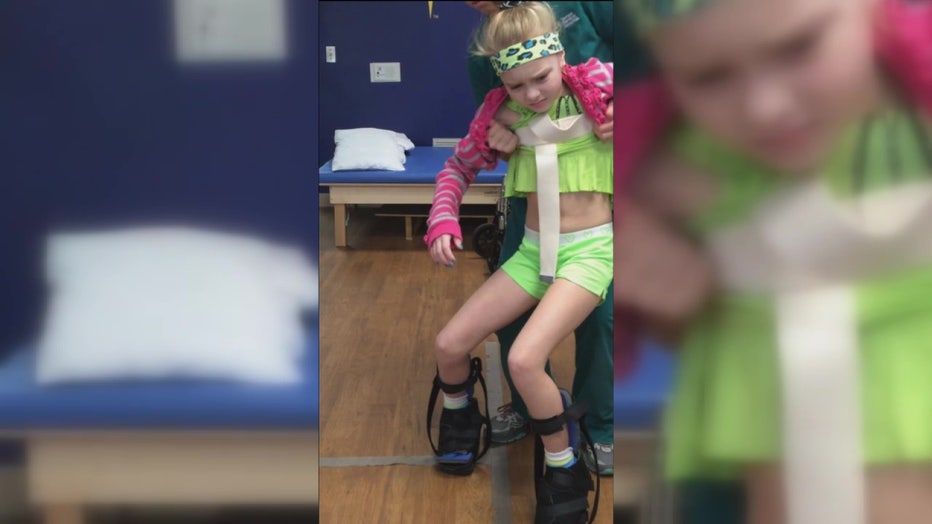
A video of Marissa Higgins helping Maya try to walk was shown in court on Friday.
Those on the stand on Friday told jurors Maya’s family was desperately searching for a cure for her.
Including Dr. Carl Barr a pediatric neurologist.
"She was very concerned, she wanted to do whatever she could to help Maya, she had some experience with ketamine in the past and she was looking whether I might be able to help her arrange Maya help her continue Ketamine coma," Dr. Barr said in regard to Beata Kowalski.
Beata Kowalski visited Dr. Barr seeking additional Ketamine treatments to help Maya with her diagnosis of Complex Regional Pain Syndrome.
While it was outside the realm of his practice, Dr. Barr offered a different treatment.
"She had received IVIG and felt it was beneficial, but it took approximately two weeks for them to see the improvement and then it was wearing off quickly so she had requested whether we could change the infusion spacing to every three weeks instead of every four weeks," he told the jury.
The defense noted Dr. Barr did not personally diagnose Maya with CRPS.
"That’s why you told us before that you didn’t find any objective evidence yourself, you took the diagnosis from the mother, correct?" questioned Howard Hunter.
"Based upon previous evaluations form other physicians as well," responded Dr. Barr.
Court will resume Monday morning at 8:30 a.m. Maya is expected to take the stand next week.
Maya was separated from her family during her time at All Children’s Hospital after hospital staff reported suspicions of abuse to DCF. A judge ordered her remain at the hospital under state custody.
After being kept away from her daughter for 87 days, Beata Kowalski hung herself in the family’s home.
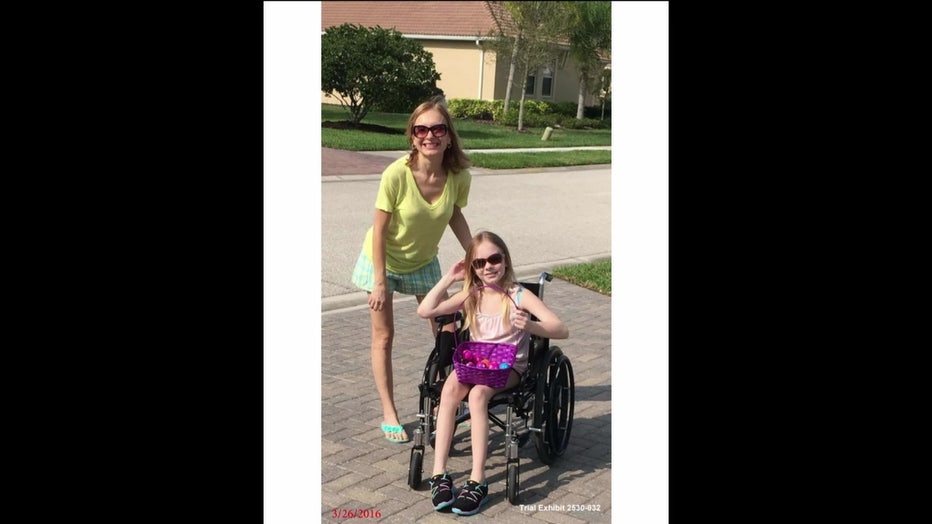
Pictured: Maya and Beata Kowalski
Now, the surviving Kowalskis are suing Johns Hopkins All Children’s Hospital for $200 million, claiming the actions of ACH and DCF caused Beata Kowalski to take her own life.
Testifying on behalf of Maya Kowalski, Dr. Chopra said the emotional distress caused by being separated from her parents and placed into state custody could have triggered her CRPS to flare up, causing her even more pain.
"The emotional stress of having not exactly very friendly people come in every time and people who weren’t listening to her, people who were not paying attention to her time was stressing her out and that was causing a lot of her pain to flare up," he said.
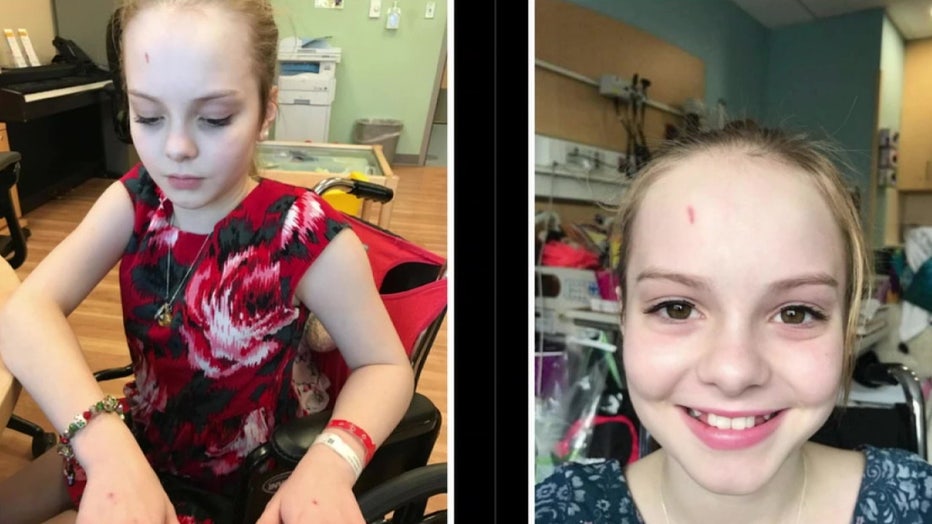
Side by side images of Maya Kowalski as she battled CRPS.
Why was Maya in the hospital?
The Kowalski’s say they took Maya to All Childrens' Hospital in October 2016 because she was having an intense pain flare up from CRPS.
CRPS is a rare pain disease that can follow an injury, and it’s tough to diagnose and sufferers are sometimes accused of faking their pain.
RELATED: 'An unseen pain': Woman describes living with CRPS as 'Take Care of Maya' trial continues
There’s no cure for CRPS and treatments can range from acupuncture and nutrition to physical therapy and massage or ketamine therapy.
The Kowalski family attorney argues that the hospital staff refused to believe Maya had CRPS even after Maya’s doctor, who did not work for All Children’s Hospital, confirmed her diagnosis.
Woman describes living with CRPS
As the trial between the family of Maya Kowalski and Johns Hopkins All Children’s Hospital continues, a woman who is also living with CPRS described what living with the illness is like
That same doctor had previously prescribed ketamine as a treatment, which can be used as a pain management tool, but it is also sometimes abused. In high enough doses ketamine can cause coma and even death.
On Thursday, defense attorneys for Johns Hopkins All Children’s Hospital focused on Maya’s continued pain and questioned whether the ketamine was truly helping her.
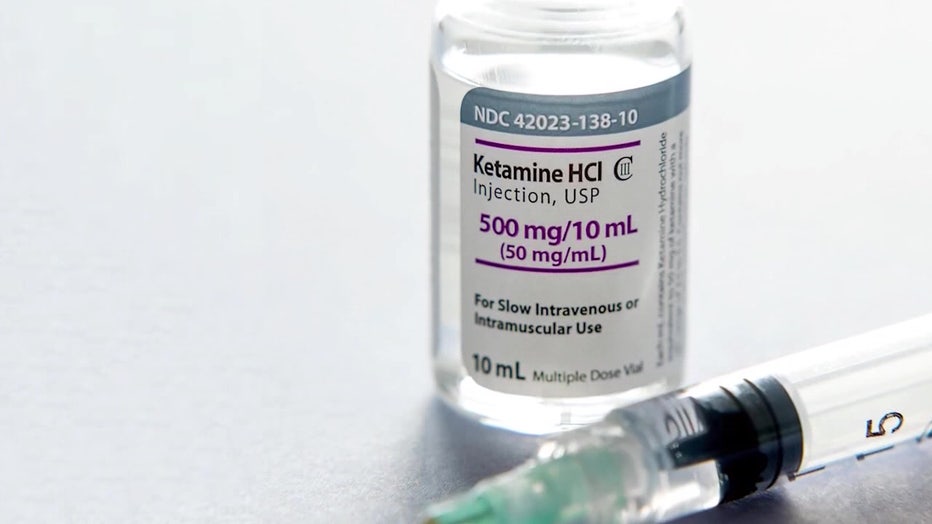
"Based on her condition the day before all children’s, Maya was going to be sick with crippling pain for a while?" asked a defense attorney.
"Correct. She will be sick with crippling pain her most of her life," stated Dr. Chopra.
"Right, including her hospitalization at All Children’s. Not because of what All Children’s did because that’s her condition," asked the attorney.
"Right. She did not respond to the ketamine given to her two days before that and then she had abdominal pain," said Dr. Chopra.
"Because the ketamine failed?" the attorney questioned on.
"That episode failed," said Dr. Chopra.
Why wasn't Maya allowed to see her family?
While at the hospital, Maya’s mother insisted the hospital give her daughter ketamine. Her persistence alarmed hospital staff and they called in a report to the Child Abuse Hotline.
They suspected Beata Kowalski, who was a registered nurse, was making her daughter sick.
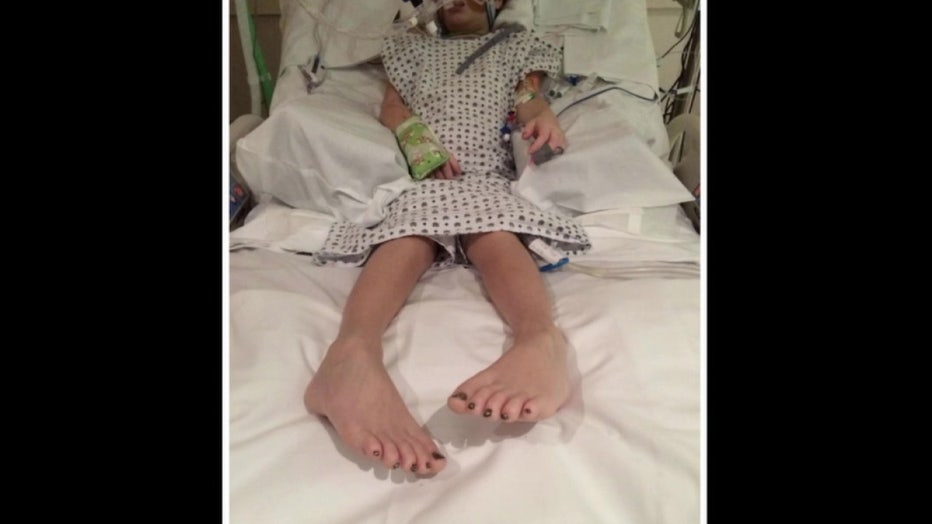
Maya Kowalski in a hospital bed.
When the hospital’s attorney began his opening statements, he noted that several hospital staffers believed Beata Kowalski suffered from Munchausen syndrome by proxy (MBP) and they were trying to protect Maya.
A judge ordered Maya to be sheltered at the hospital while the child abuse allegations were being investigated. She wasn’t allowed to be discharged to her family or another treatment facility and could not see her mother.
Beata Kowalski died by suicide about three months after Maya was taken into state custody. She left a note saying she could no longer take the pain from being away from her daughter and being treated like a criminal. Maya was eventually allowed to return to her family following her mother's death.
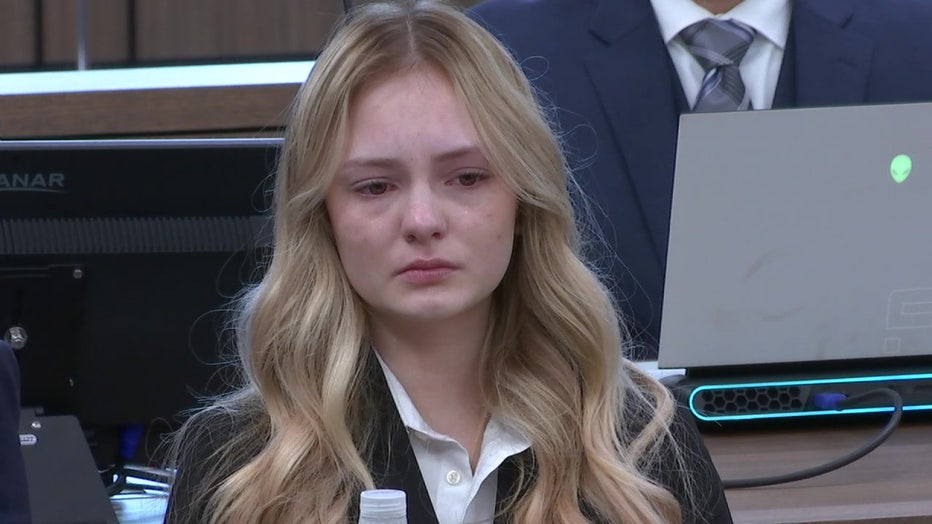
Maya Kowalski listens to opening statements in a $200 million case against All Children's Hospital.
"We had no reason to wish this family harm and we still don’t, the issue here is who is responsible for it. We will go over the facts and what the facts don’t show in terms of any connection of what was done by All Children’s and that tragic result," said Howard Hunter representing Johns Hopkins All Children’s Hospital.
Hunter says staff at Johns Hopkins All Children’s Hospital followed state law by reporting a situation that raised red flags for the medical staff.
However, the Kowalski family claims that while hospital staff was accusing them of lying about CRPS and refusing to treat Maya, the facility was billing the family and their insurance more than half a million dollars for that exact cause of illness.
The hospital is expected to argue that Maya’s outside ketamine treatments were dangerous and inappropriate for a child.
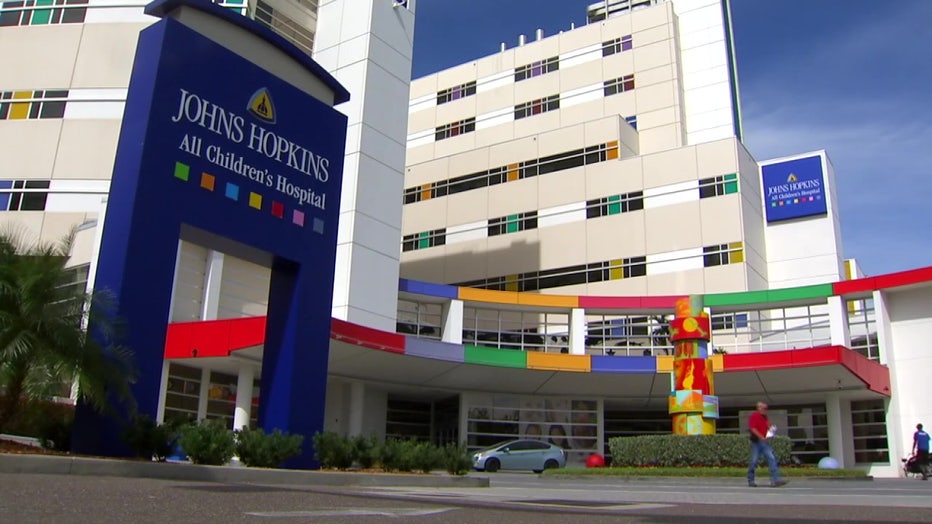
File: Johns Hopkins All Children's Hospital
Jurors will ultimately have to decide whether what happened to the Kowalski family could have been prevented and if the hospital’s actions pushed Beata Kowalski to take her own life.
"We ask in this case for you to consider not only compensatory damages to try to make them whole for these terrible things, but also punitive damages to deter them to punish them and to deter this type of behavior in the future," said Greg Anderson, Maya Kowalski’s lawyer.
The family already settled with the DCF Suncoast Center and child abuse pediatrician Dr. Sally Smith who once worked for the center, but is no longer employed by the organization.
Last week, the Kowalskis dropped a case against DCF social worker Catherine Bedy, who was a focus of the documentary.
The family’s attorney reportedly described the decision as a ‘walkaway agreement’, which means the family chose to drop the suit against Bedy while continuing to sue the hospital.
The trial is expected to last up to two months.

